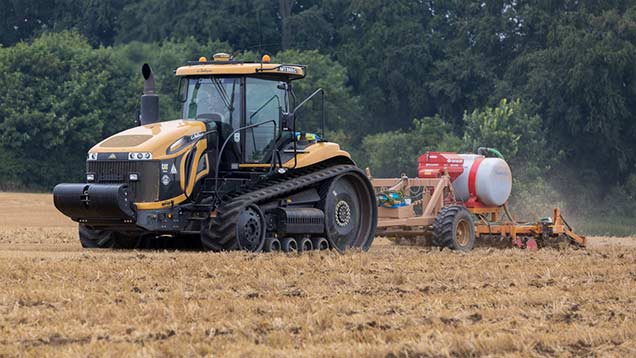Neonicotinoids legal action launched by Friends of the Earth
 © Tim Scrivener
© Tim Scrivener Friends of the Earth (FoE) has launched a legal challenge against the government’s decision to allow some farmers in England to use neonicotinoids on oilseed rape.
The environmental group has confirmed it has mounted a legal bid in the High Court to overturn Defra’s decision to allow farmers in four English counties to sow oilseed rape seeds coated with neonicotinoid pesticides this autumn.
The decision to allow emergency use of neonics in Suffolk, Cambridgeshire, Bedfordshire and Hertfordshire – up to 5% of the total oilseed rape area in England – was granted following a request by the NFU, which argued that untreated crops were being hammered in these counties by cabbage stem flea beetle.
See also: Study reignites debate over farming benefits of neonics
But in a statement released on Monday (24 August), FoE said it was challenging Defra’s decision on pesticides because it believes it “did not comply with EU law which sets out the conditions under which governments can grant emergency use of the restricted neonicotinoids”.
FoE bees campaigner Dave Timms said: “We believe that allowing farmers to use these ‘banned’ pesticides is unnecessary, harmful and unlawful.
“These neonicotinoid pesticides have been restricted throughout the EU because scientists say they are harming bees, which are crucial for pollinating Britain’s fields, allotments and gardens.
“The government should be listening to the science and championing the long-term interests of our threatened bees.
“The distribution of these seeds should now be halted until the courts can decide whether their use is lawful.”
In December 2013, the EU Commission announced a two-year ban on three neonicotinoids for use on flowering crops, including oilseed rape, barley and sunflowers after scientists linked their use to a decline in bee health.
“We have fully applied the precautionary ban on the use of neonicotinoids introduced by the EU, and we make decisions on pesticides based on the science only once the regulators are satisfied they are safe to people and the environment”
Defra
The commission is reviewing the terms of the ban.
Last month, Defra used “emergency” powers to temporarily lift the ban to allow oilseed rape growers, whose crops have been plagued by flea beetle in four counties in England, to use neonics.
A Defra spokesman said: “We have fully applied the precautionary ban on the use of neonicotinoids introduced by the EU, and we make decisions on pesticides based on the science only once the regulators are satisfied they are safe to people and the environment.
“Based on the evidence, we have followed the advice of the UK Expert Committee on Pesticides and Defra’s chief scientist, that a limited emergency authorisation of two pesticides requested by farmers should be granted in areas where oilseed rape crops are at greatest risk of pest damage.”
